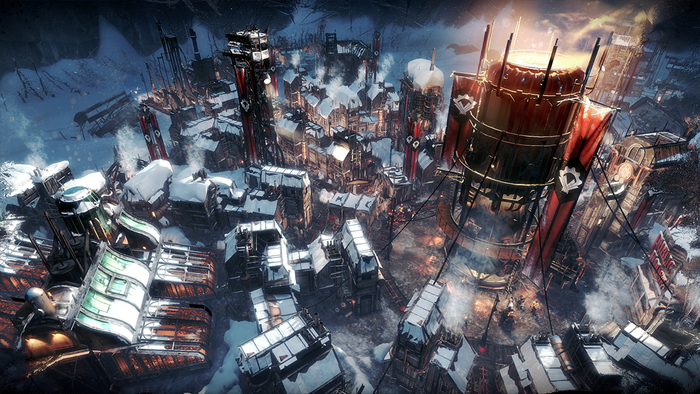A reader confesses to sister site Game Career Guide's 'Ask the Experts' advice columnist that she <a href="http://gamecareerguide.com/features/675/ask_the_experts_i_do_not_heart_.php">can’t stand working on a team</a>. Does this mean she can never work in

In the latest advice column from Gamasutra’s sister website GameCareerGuide, a reader confesses that she loathes teamwork and worries that this little fact may be a tip off that she should not work in game development. Jill Duffy, editor of GameCareerGuide and author of the column, has advice about how to think differently about teamwork but why it ultimately remains a pretty important aspect of working in the professional game industry. Gamasutra, which is affiliated with GameCareerGuide, is running this exclusive game industry career advice column in full. For more advice about breaking into the game development industry, visit GameCareerGuide’s Getting Started section. Dear Experts, It has become apparent to me that working in teams is unavoidable in the game industry. I have had my share of bad experiences working in teams and have come to not trust others to help me get the job done right. These experiences have made me hate working in teams; I usually feel I can get the job done better myself even if it is overwhelming. I very much want to work in the game industry, but I can't seem to break out of my shell to ask other for help or to let them offer assistance. What advice do you have for someone who doesn't trust anyone to help her get the job done right? Thanks, Trust Issues Dear Trust Issues, I hear you! I used to hate group work, especially in school. I did everything I could to avoid it. Even if I had to do double the work to only receive half the credit, I found a way to get out of it. Then I had a class in grad school where I was paired up with a young woman on a project. We had both done some preliminary work before being hooked up, and we swapped papers to see what we had both done so far. When I read her work, it became apparent that she had a much deeper knowledge of the subject than I had. It was thought-provoking, investigative stuff, and I was suddenly ashamed of the work I had done, feeling that hers was so much better -- like publishable quality. I told her flat out, "I wish I had written this paper." To my amazement, she replied, "Your work really looks at the topic in a way I never would have. I feel the same way about yours!" I got lucky to have been teamed up with her. When she validated my contribution, it meant so much more to me because of the high esteem in which I held her work. When our project got rolling, we didn't so much work collectively as independently, but we met every so often to sew our pieces together. I had complete trust that she would come up with more brilliant stuff, the kinds of things that my learning style and writing style would never lead me to, and she felt the same way about me. It was a great match, the first one for me in two decades of experiences. Collaborate in a Way That Works for You It can take a long time to find people that you can collaborate with. Then again, you might never find them. And if you do find them, you might still come to learn that the way you collaborate best is atypical of how other people tend to do it. Making video games really does require teamwork to do well and for profit. Every so often I run across someone who works totally independently, but they are usually people who do not plan to make a living off their creations (and even more likely, students who consult their professors and ask their peers and friends to be play testers, which is to say, even they don't work in a vacuum). One thing you may have to have some blind faith in is the fact that game industry professionals are really bright. If your goal is to be hired into an existing and profitable game development studio, you may have to just trust that the majority of employees who work there are smarter than the average bear and will be better teammates than people you have collaborated with in the past. Moreover, if they are experienced, they are used to being on a team and used to working with other people of different personality types and working styles. In other words, they may be able to help integrate you onto their team. Remember that you'll be the new person. You'll be the weak link. It's them who will have to learn to trust that you will do your job well, not so much the other way around if you go to work for an existing studio. If you're still in school, I would encourage you to continue trying team-based projects because you really should have that experience under your belt. But in the meantime, don't hesitate to make a few small game applications on your own, too. Let the solo projects be the ones you know you can show in your portfolio; let the team-based projects be the ones where you are taking risks. If you're at the stage of being ready to interview for jobs, you should definitely think about different ways you can explain to your future manager and team lead that you work best independently and really enjoy doing discrete tasks, as there may be a lot of this kind of work up for grabs. Despite all your negative associations with teamwork, you can learn to be a team player. Start thinking more critically about where and how you fit onto a team best, and try to work from there. [Jill Duffy is editor-in-chief of GameCareerGuide.com, senior contributing editor of Game Developer magazine, and content manager of the Game Career Seminar series of live events. Send her your questions about game development careers and education at [email protected].]
About the Author(s)
You May Also Like







